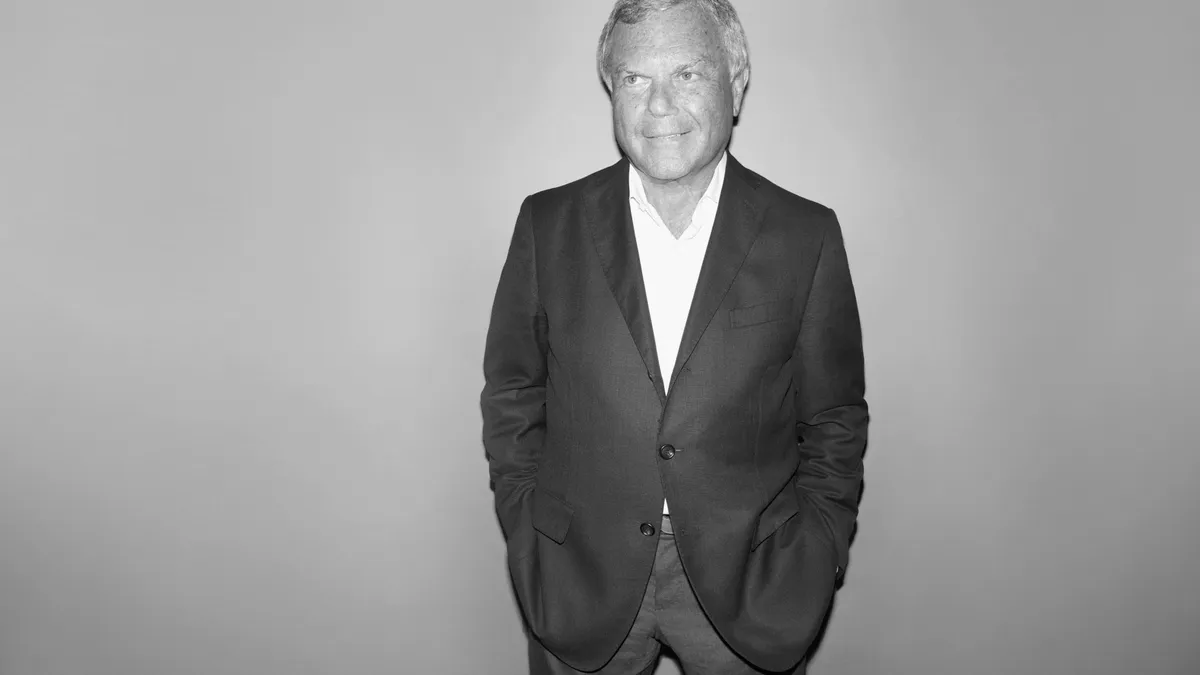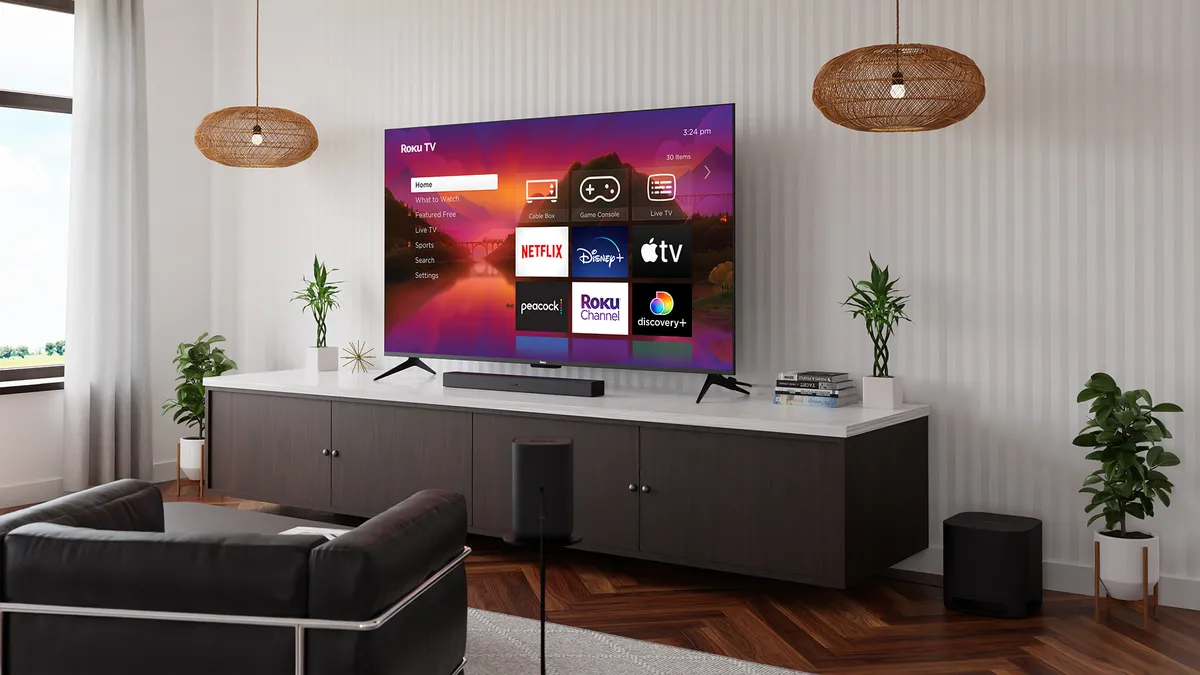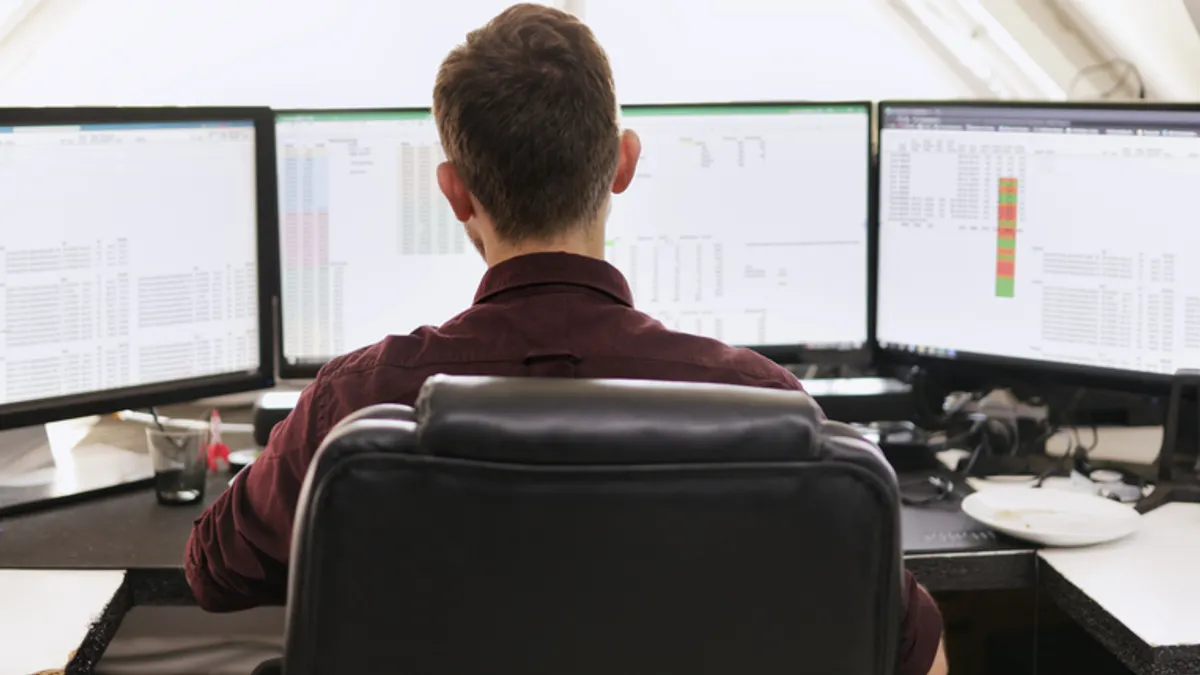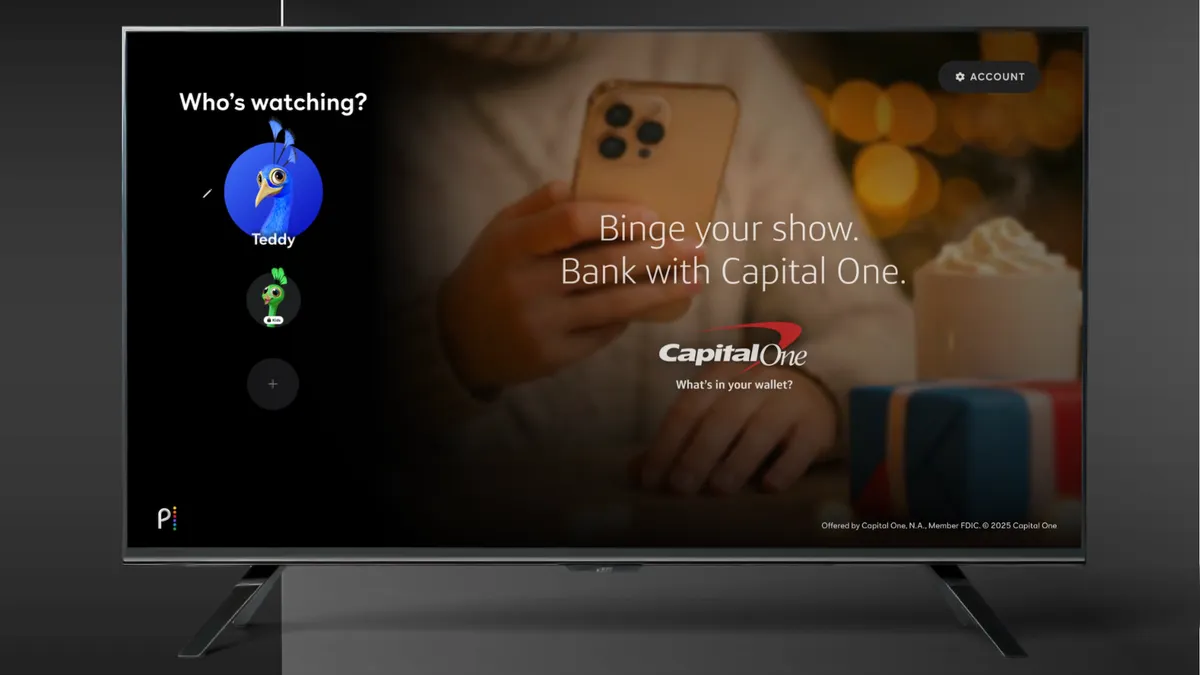Even as vaccines roll out and caseloads decrease, the world will likely be forever changed by a pandemic that accelerated preexisting trends across all facets of daily life. That is certainly true of the future of white-collar work, like much of the work done across the advertising industry. Agencies and their partners are likely to adopt a flexible approach to work that meets new demands from employees — a change Martin Sorrell is ready to face at S4 Capital, the digital marketing holding company he launched after his exit from WPP in 2018.
"There's a control phenomenon... management at my age — I'm an old fart — old farts like me tend to think that you have to be in the office: if you're not in the office, you're not working. And that's not the case. We can measure productivity, and during lockdowns, our productivity has not suffered," Sorrell told Marketing Dive.
In S4's first-quarter earnings report, Sorrell predicted the future of work will change, with employees in offices for an average of three days a week. At a company like S4 with about 5,000 employees, many of whom are 28 to 30 years old and digital natives, this is not a change to how they already approach work. While recognizing the tragedy of COVID, Sorrell and S4 are looking at how the changes to work could have a positive impact.
"I think companies actually were probably better run during the pandemic," he said. "Authority was devolved down inside these companies, and ended up being more diffused, and that was to the benefit of everybody."
For the legendarily pugnacious executive, that devolution of authority is yet another change to an ad world defined by disruption in recent years — a state of flux that is at the heart of S4's approach.
Conversion at scale
Many corners of the advertising industry are returning to strength after the unprecedented disruption and tragedy of the coronavirus pandemic, among them S4 Capital. S4 saw revenue grow 59% in 2020, a trend that continued in Q1 2021, causing the company to initially raise its guidance from 25% to 30% organic revenue growth for the year. Today, the company revised its guidance again and now expects organic net revenue growth of 35% in 2021.
After launching in late 2018, developing brand awareness for the company and trialing its model in 2019, S4 started seeing conversion at scale in 2020, Sorrell said. In 2021 and beyond, S4 continues to work toward its 20 squared objective: 20 clients each delivering $20 million in gross revenue per year. To do that, Sorrell and S4 are on the hunt for five more clients that Sorrell and S4 call "whoppers" — like BMW/Mini and Mondelez, which it won last year.
Beyond the revenue opportunity, winning such clients serves as proof that the S4 model works and is gaining traction against the traditional agency holding groups, Sorrell explained. S4's annual report is titled "Seize The Decade," an idea Sorrell attributes to S4 executive director and MediaMonks co-founder Wesley ter Haar, who believes AKQA won the first decade of the new millennium, R/GA took the second and that S4 will have the third.
"We're very much disruptors trying to change the status quo, because we think the status quo is inadequate, and that the holding company model which has actually been in existence for about 70 years ... is past its sell-by date — not fit for purpose," Sorrell said.
Four principles remain at core
S4 was founded on four principles — purely digital; data-driven; faster, better, cheaper; unitarily structured — that continue to guide its business and future plans. Digital spend was more than 50% of the entire ad market in 2020, and Sorrell says it will have 70% share by 2026. Accordingly, S4 is committed to not just being digital-first, but being digital-only.
"The digital tail will wag the dog," he said.
The company's data-driven model uses first-party data and the signals from ad platforms to create and distribute personalized digital content in an always-on environment. As first-party data has become more important amid changing privacy regulations around the world and recent moves by Google and Apple, S4 has seen its data and analytics business thrive.
"Most clients who do have first party data … have it in buckets that don't speak to one another. They have either different CTOs or CMOs or CIOs who put in different systems, or they've grown by acquisition, and you can't pull the data together in a meaningful way," Sorrell said.
Along with its data-driven approach, S4's "faster, better, cheaper" mantra sees it focusing on the digital ecosystem to understand the strengths and weaknesses of an increasingly fragmented ad landscape, whatever form it takes.
"People often say we're an ad-tech or a martech company — we're not," Sorrell said. "We're a service provider, and we're agnostic about the technology, whether it's hardware, software or platform."
The fourth principle — S4's unitary structure — is the one that takes the clearest shot at traditional agency holding companies, which Sorrell finds to be too vertical, cumbersome and not as dedicated to simplification as they claim.
"People who put their money where their mouth is — not options or restricted stock, but actually invest money or equity inside the business — that sorts out the men from the boys, the women from the girls."

Martin Sorrell
Founder and executive chairman, S4 Capital
For example, Sorrell relayed an anecdote of an associate at WPP who called him for advice about a job offer. She was working at one of the digital agencies inside WPP and had three offers for new jobs — all from other WPP companies, and all with a 25% premium.
"Despite what they all say about simplification, it's all gobbledygook and bureaucrats at the center. They don't even push paper anymore, they're just pushing emails to one another," he said.
Approach to acquisitions
After launching WPP in 1985, Sorrell turned it into the world's largest agency group partially by aggressive acquisitions — including the hostile takeovers of agencies J. Walter Thompson and Ogilvy and Mather. He has used a similarly acquisitive approach to rapidly grow S4. After acquiring MediaMonks, S4 has added 11 operations to the content-side of the business. And since Google's announcement in January 2020 that it would kill the third-party cookie, the company focused on building out its data and analytics offering around the globe.
That will likely continue; the company has 500 million pounds in "firepower" to pursue more acquisitions, per S4's Q1 earnings report. However, S4 has taken a more targeted approach, especially as it competes with deeper-pocketed holding companies with entrepreneurial principals that share S4's vision.
"People who put their money where their mouth is — not options or restricted stock, but actually invest money or equity inside the business — that sorts out the men from the boys, the women from the girls," Sorrell said.
Along with looking for like-minded companies, S4 has four criteria for deals: top line growth; good margins, or a pathway to good margins; no or limited susceptibility to technological change; and management must own a "significant chunk" of the company. Again, the latter point is a differentiator to the holding companies, where "most of the people who run them don't have any financial interest," he said.
To illustrate how this approach has panned out, Sorrell pointed to the MightyHive acquisition, where S4 was perhaps the fourth highest offer, and the MediaMonks deal, where the digital production company passed on a 1.5 billion euro deal from WPP for a 300 million euro deal from S4 — a half shares, half cash deal from which the MediaMonks principals have done "very well," according to Sorrell.
Diversity and sustainability
While S4 has stressed how it is different from ad holding companies, it has made similar moves to its competitors as it faces an environment where diversity, equity and inclusion (DEI) and sustainability have become even higher priorities as marketers seek to engage with increasingly cynical consumers.
Overall, Sorrell says S4 is a very diverse company, with people of color representing about 40% of staff. But while Asian-American and Hispanic representation is "strong," the Black population is just 5%. To address that disparity and reflect the communities in which it works, S4 has instituted education programs, including anti-bias training, and short-term hiring goals. It also launched the S4 Fellowship, a four-year, immersive accelerator program that recruits talent from historically Black universities and high schools in the U.S, the first class of which started in March.
Similarly, S4 is about 50-50 on gender, but only about a third of senior level employees are women, which Sorrell says is "not good enough." To address that, the company launched the S4 Women Leadership Programme at the University of California, Berkeley, a six-month virtual course in which approximately 50 women have participated.
"We really think having a diverse workforce is critically important for our success, both in terms of the work that we do and the people we attract," Sorrell said.
Beyond how it affects the company's work and people, diversity is increasingly becoming a client requirement; Sorrell notes a recent pitch that staked 40% of the grade on the team's diversity.
Along with diversity, S4 has taken several actions around sustainability, setting a goal of having net-zero carbon emissions by 2024, which Sorrell claimed is more accelerated than other companies that have set goals for 2030 or beyond. The company has started planting an S4 Forest and is working toward B Corp status. Ultimately, Sorrell knows that diversity and sustainability efforts will be judged by what they achieve.
"In the course of the pandemic, we saw a lot of 'woke' stuff, or we saw a lot of paying lip service and lacking in genuine response," he said.





















